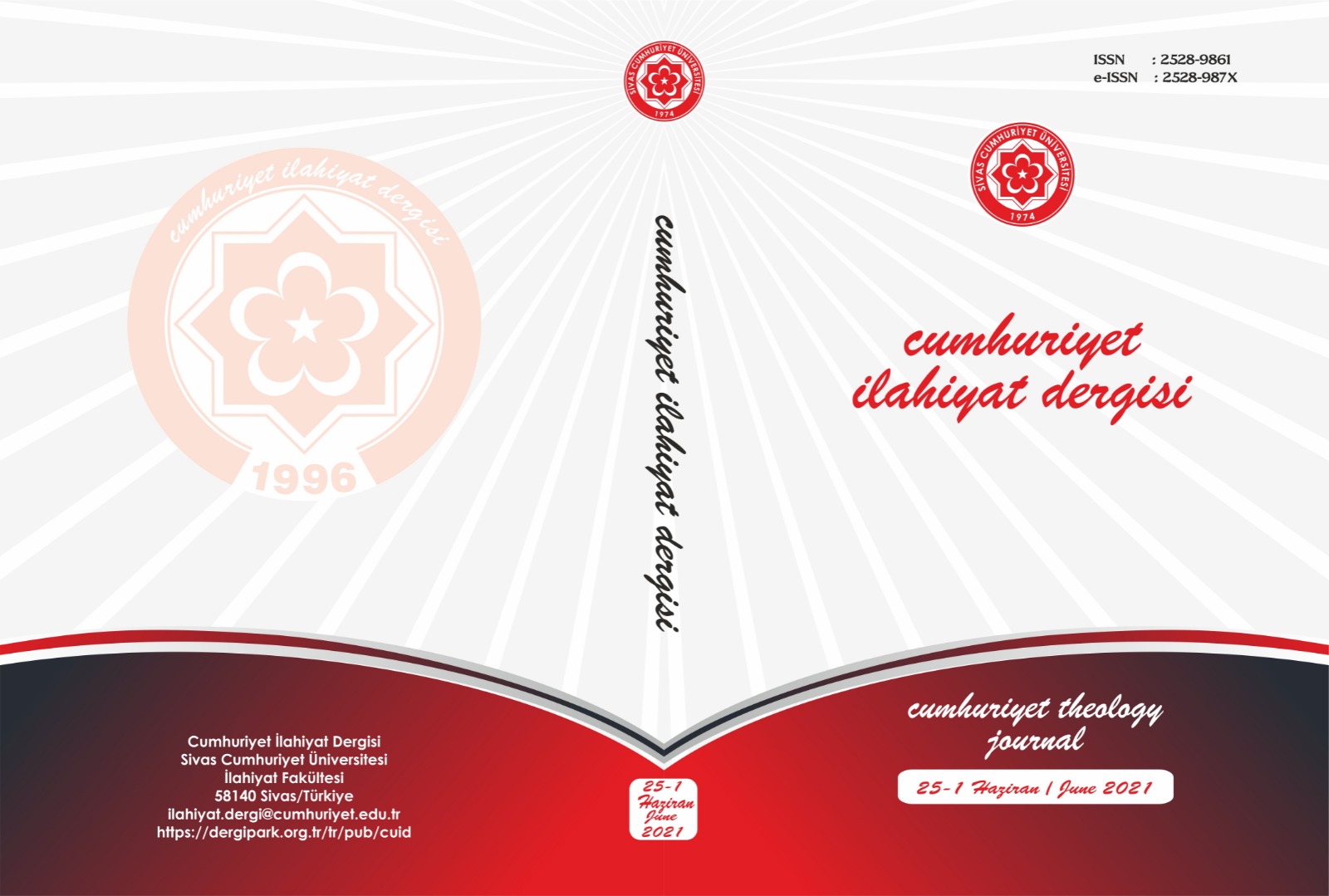Covid-19 Pandemi Sürecinden Geçerken Sağlık Çalışanlarında Dini Başa Çıkma ve Psikolojik Sağlamlık İlişkisi Üzerine Bir Araştırma
A Research on the Relationship Between Religious Coping and Psychological Resilience in Healthcare Professionals During Covid-19 Pandemic
Author(s): Yasemin AngınSubject(s): Psychology, Theology and Religion, Health and medicine and law
Published by: Cumhuriyet Üniversitesi İlahyat Fakültesi
Keywords: Psychology of Religion; COVID-19 Pandemic; Healthcare Professionals; Religious Coping; Psychological Resilience;
Summary/Abstract: COVID-19 is a new type of coronavirus that has spread all over the world and has caused a global epidemic that affected all parts of society. Healthcare professionals that are involved in the diagnosis, treatment, and care of patients diagnosed with coronavirus have been under a heavy burden both physically and psychologically during the fight against this disease. Articles published on protecting the mental health of healthcare professionals during the epidemic have stated that healthcare professionals should be supported to prevent the negative effects of the epidemic on them. This new situation requires developing appropriate strategies for coping with the COVID-19 pandemic, due to the given heavy burden by healthcare professionals. Therefore, the determination of effective approaches for the protection of mental health of healthcare professionals and increasing their protective factors, such as psychological resilience, has got great importance. Positive religious coping contents can be seen among the protective factors that affect the psychological resilience of healthcare professionals. Positive religious coping behaviors, such as refuge in Allah, praying, and reading Qur'an, not only provides a spiritual strength against the troubles of life but also provides a sense of control, peace, and security. This research aims to examine the relationship between religious coping and psychological resilience in healthcare professionals during the COVID-19 pandemic. Ethical approval for this research was obtained from Atatürk University Social and Human Science Ethics Committee (12.04.2021 dated and 88656144-000.E.2100103436 numbered). Descriptive research and correlational methods were used in the study. The population of the research consists of personnel working in health facilities operating throughout the country. The sample consists of doctors, nurses, pharmacists, midwives, and other health workers working in these health institutions. The Snowball sampling method was used in this study. For this aim, a Google Forms was established and 293 health workers in more than 40 provinces have filled this form. Personal Information Form, Religious Coping Scale, and Brief Psychological Resilience Scale were used as data collection tools. These data collection tools were used to determine whether positive and negative religious coping and psychological resilience differs according to gender and age. In addition to the above-mentioned aim, the relationship between positive and negative religious coping and resilience was examined in this study. T-test and ANOVA were applied in the analysis of demographic variables. Correlation and regression analysis were used to test the relationship between the variables. Findings obtained from this study have revealed that the levels of religious coping and psychological resilience of healthcare professionals differ according to their demographic characteristics. Results have shown that while there is no significant difference between women and men in terms of using positive religious coping methods, men use negative religious coping methods more frequently than women. Results have also revealed that positive coping methods are used more frequently as age increases and psychological resilience increased with age. Correlation analysis has shown that there is a significant relationship between positive religious coping and psychological resilience. Results of regression analysis have shown that positive religious coping is a significant predictor of psychological resilience. This result shows that positive religious coping is an important variable that affects psychological resilience. Results have suggested that there is a need to develop a program with religious/spiritual content that can help healthcare professionals to overcome this difficult process more easily by increasing their psychological resilience. Results obtained from this study may not only contribute to other rehabilitative studies that can be carried out for healthcare professionals during and after the pandemic but also provide scientific data for possible academic studies on this subject.
Journal: Cumhuriyet İlahiyat Dergisi
- Issue Year: 25/2021
- Issue No: 1
- Page Range: 331-345
- Page Count: 15
- Language: Turkish

